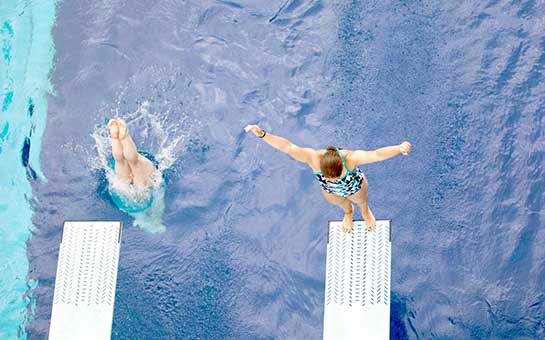Diving has emerged as a fun sport for countless enthusiasts – participants and spectators. It can be held indoors or outdoors depending on the venue. Diving is a thrilling sport when dives are perfectly executed but there is some risk. If you plan to dive while you’re abroad, be sensible and take, hazardous sports diving travel insurance before you go.
If you’re a spectator traveling far from home or going abroad to watch divers, make sure to get travel insurance and/or travel medical insurance. Since you’re not diving, hazardous sports insurance probably isn’t going to be the most suitable coverage for your needs. Travel insurance and travel medical insurance plans will have more benefits that you could find useful for situations that you find yourself experiencing – unexpected sickness or injury, trip delay or cancellation, lost or delayed luggage, and more.
Travel Insurance for Diving
When you are abroad and a diving accident lands you in hospital – the treatment expenses can leave you high and dry. But you can protect yourself from such an eventuality by opting for hazardous sports diving travel insurance. This insurance will ensure that you can enjoy your diving sport without having to worry about medical expenses in the event of a mishap.
You must remember to obtain diving sport travel insurance before you leave from home. Keep in mind that not all travel insurance plans will cover hazardous sports, and check to be sure that your specific activity is included in the coverage before you buy. If you need help choosing the best plan for diving, contact our office for assistance – we are waiting for your call. Once you have the coverage you need, you’ll be ready to focus on what’s important to you.
Basics of Diving
There are many different types of diving that are either competitive or recreational in nature. Competitive diving is a sport where peak physical performance can take you far. Some divers are former gymnasts or dancers that shifted to diving, other divers have been training for their specific activity for years – all participants train to gain the necessary strength, flexibility, coordination, and air sense – all very important abilities for any diver.
Diving springboard and platform heights vary based on several factors. Divers of any age must go through rigorous training under adequate supervision to ensure form is perfect in attempts of preventing injury; however, even with training, there are still some risk factors in diving.
Risks of Diving
In spite of the best possible training and precautionary measures, the risk of accidents doesn’t go away in extreme sports. This is the case with diving as well and should be reason enough to acquire hazardous sports insurance for diving before you participate.
Divers often hit the water at a high speed from a fair height. A small miscalculation at take-off or on water entry impact could cause a number of different injuries from musculoskeletal injuries to the shoulders, elbows, wrists, legs, or concussion, and even injury to eyes, ears or scalp. Potentially fatal accidents can occur when the diver has bad form, or dives too deep and hits the bottom, or dives into water that is too shallow and ends up hitting the bottom. The risk of drowning is always a possibility where there is water.
Knowing the risks should not act as a deterrent to your diving plans. It isn’t meant to scare you – but to enable you to protect yourself against the risk with proper training, adequate supervision, and extreme sports travel insurance that covers diving.

